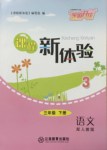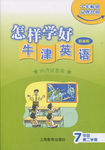题目内容
| |||||||||||||||||||||||||||||||||||||||||||||||||||||||||||||||||||||||||||||||||||||||||||||||||||||||||||||||||||||||||||||||||||||||||||||||||||||||||||||||||||||||||||||||||||||||||||||||||||||||||||||||||||||||||||||||||||||||||||||||||||||||||||||||||||||||||||||||||||||||||||
解析:
|
完型填空翻译: 一群青蛙结伴去树林旅游,突然两只青蛙一不小心掉进了一个深坑。 其他青蛙趴坑沿往下一看,这坑可真深。于是它们就告诉这两个倒霉的同伴:“你们完啦!没救了!” 这两只青蛙没理它们,奋力地往上跳着。它们的同伴就趴在坑沿上不停地冲它们嚷:“你们完了!没救了!”终于,有一只青蛙被它的同伴嚷得泄了气,躺在坑底放弃挣扎了,没多长时间它就咽气了。 于是青蛙们一起冲着另外一只青蛙喊,让它别再费劲了,还是老实等死吧,但是它却没听到似的仍然拼着命往上跳,而且越跳越来劲,终于跳出来了。 其他青蛙把它围住问它:“你没听见我们说的话吗?我们让你别跳了你怎么还跳?”这只青蛙解释说:“我的耳朵有点背,我还以为你们自始至终都在给我鼓劲呢。” 一句话对处于困难中的人往往起着决定性的作用。一句鼓励的话能给他们极大的力量,帮助他们渡过难关;相反,在此时给他泄气实际上就是落井下石,将致他于死地。人们时常不自觉地在别人遇到困难的时候对他们说一些泄气话,然而如果能真心地给他们以鼓励,这才是最难能可贵的。 |

 芝麻开花课程新体验系列答案
芝麻开花课程新体验系列答案 怎样学好牛津英语系列答案
怎样学好牛津英语系列答案
| |||||||||||||||||||||||||||||||||||||||||||||||||||||||||||||||||||||||||||||||||||||||||||||||||||||||||||||||||||||||||||||||||||||||||||||||||||||||||||||||||||||||||||||||||||||||||||||||||||||||||||||||||||||||||||||||||||||||||||||||||||||||||||||||||||||||||||||||||||||||||||
| |||||||||||||||||||||||||||||||||||||||||||||||||||||||||||||||||||||||||||||||||||||||||||||||||||||||||||||||||||||||||||||||||||||||||||||||||||||||||||||||||||||||||||||||||||||||||||||||||||||||||||||||||||||||||||||||||||||||||||||||||||||||||||||||||||||||||||||||||||||||||||
| |||||||||||||||||||||||||||||||||||||||||||||||||||||||||||||||||||||||||||||||||||||||||||||||||||||||||||||||||||||||||||||||||||||||||||||||||||||||||||||||||||||||||||||||||||||||||||||||||||||||||||||||||||||||||||||||||||||||||||||||||||||||||||||||||||||||||||||||||||||||||||
| |||||||||||||||||||||||||||||||||||||||||||||||||||||||||||||||||||||||||||||||||||||||||||||||||||||||||||||||||||||||||||||||||||||||||||||||||||||||||||||||||||||||||||||||||||||||||||||||||||||||||||||||||||||||||||||||||||||||||||||||||||||||||||||||||||||||||||||||||||||||||||